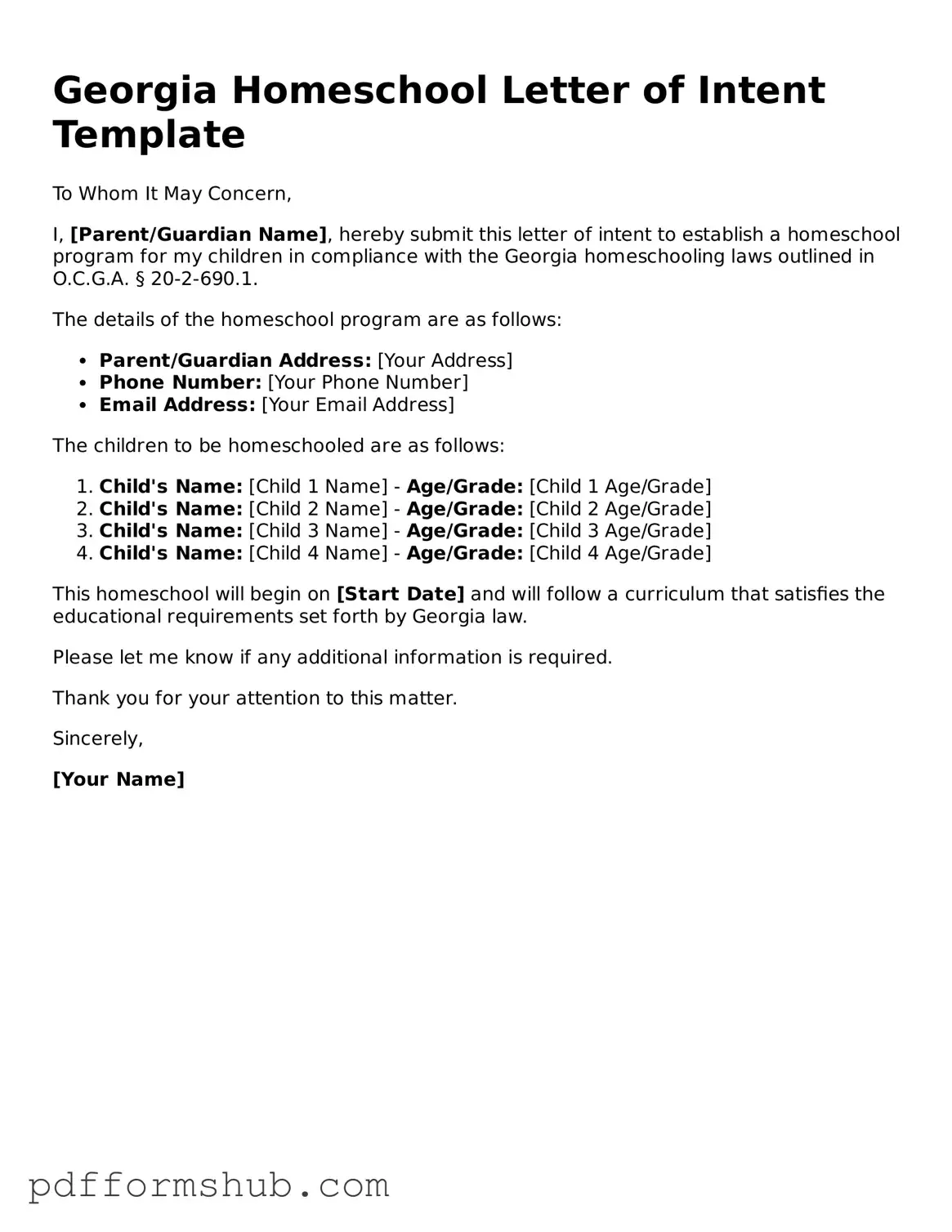Attorney-Verified Homeschool Letter of Intent Form for Georgia State
The Georgia Homeschool Letter of Intent is a formal document that parents or guardians must submit to the state to legally establish a homeschooling program for their children. This form serves as an official notification to the Georgia Department of Education, indicating that the family has chosen to educate their child at home. Understanding the requirements and process for this form is essential for ensuring compliance with state laws.
To get started, fill out the form by clicking the button below.
Customize Form

Attorney-Verified Homeschool Letter of Intent Form for Georgia State
Customize Form

Customize Form
or
Free PDF Form
Short deadline? Complete this form now
Complete Homeschool Letter of Intent online without printing hassles.